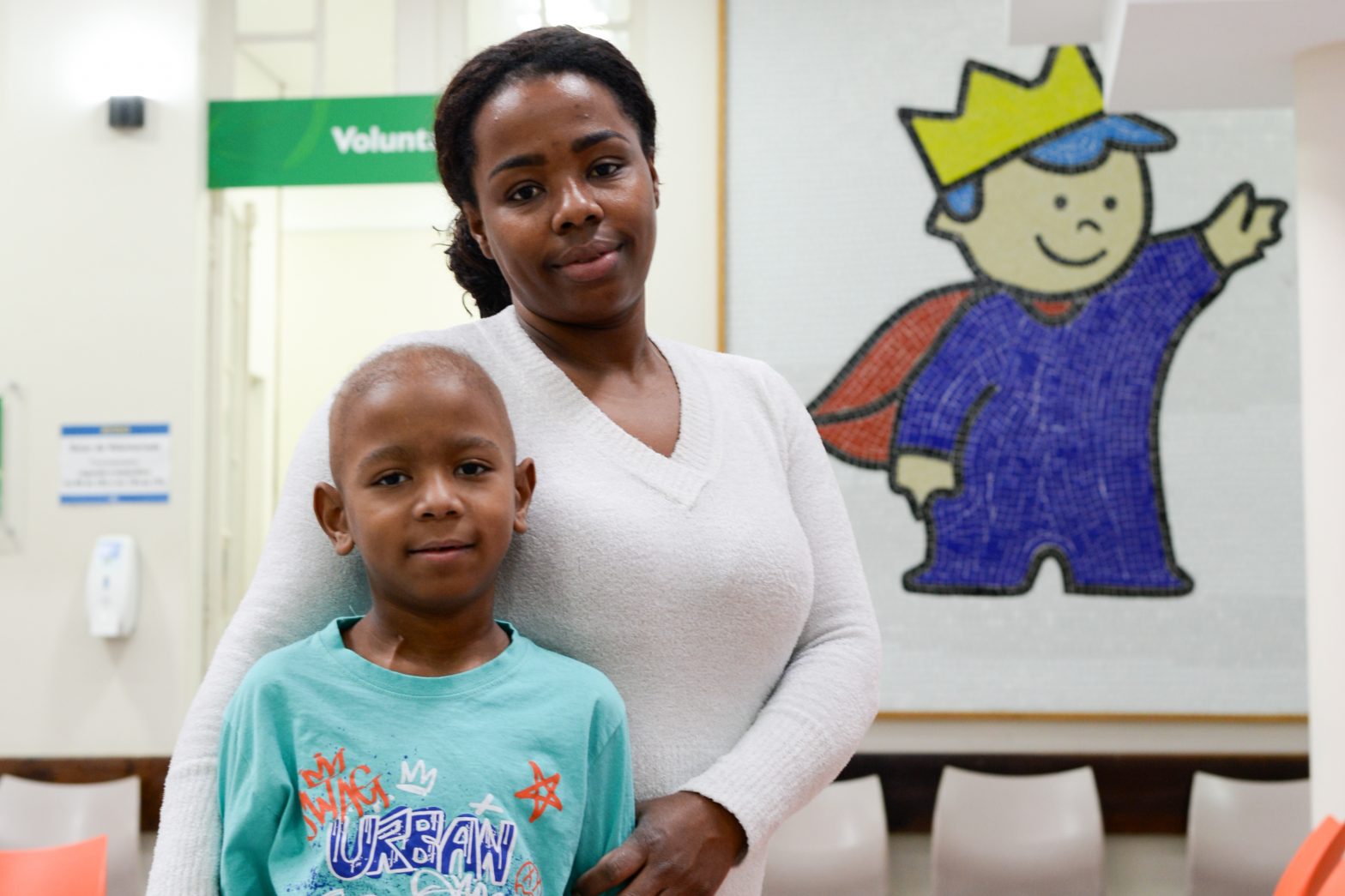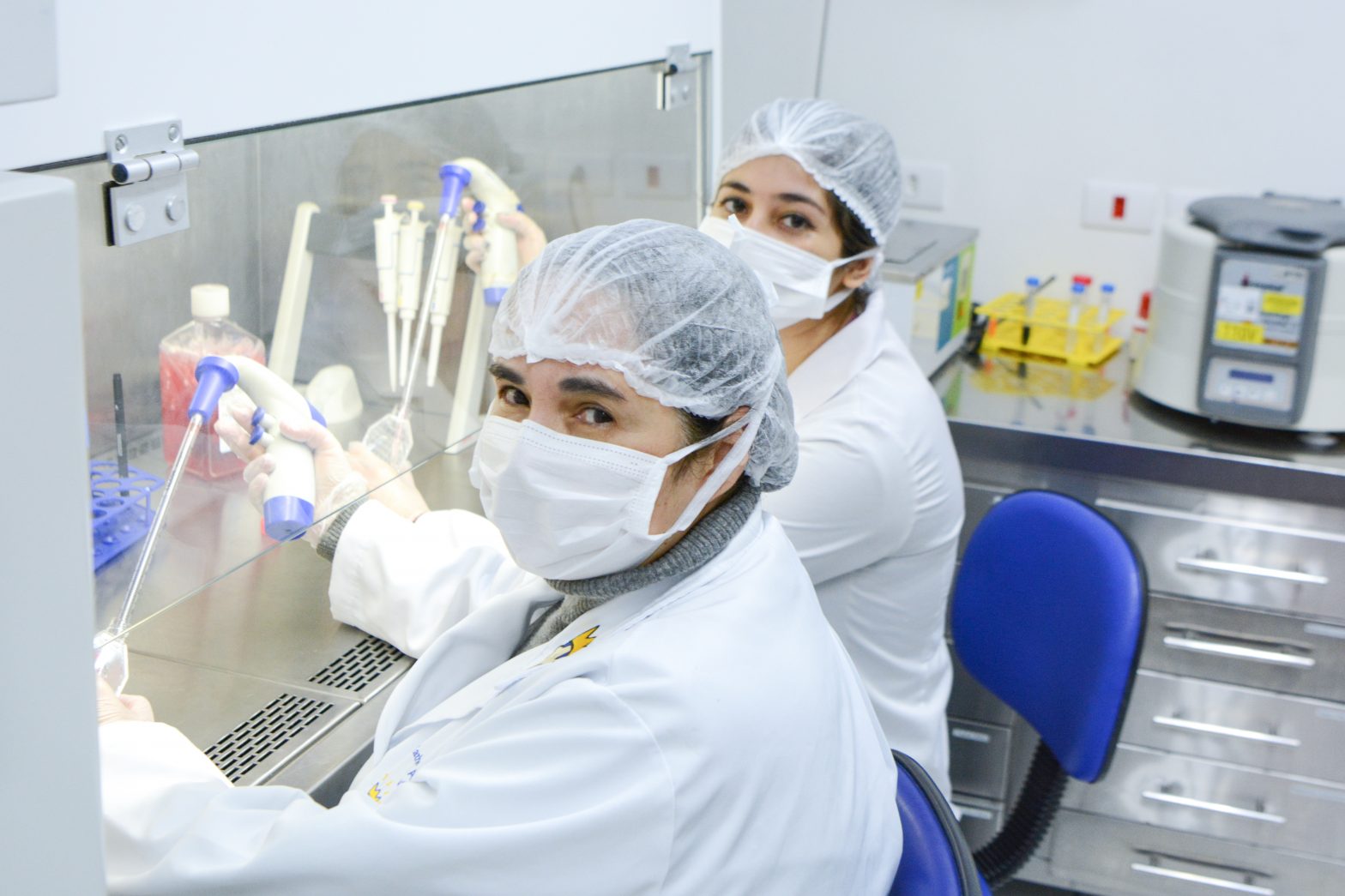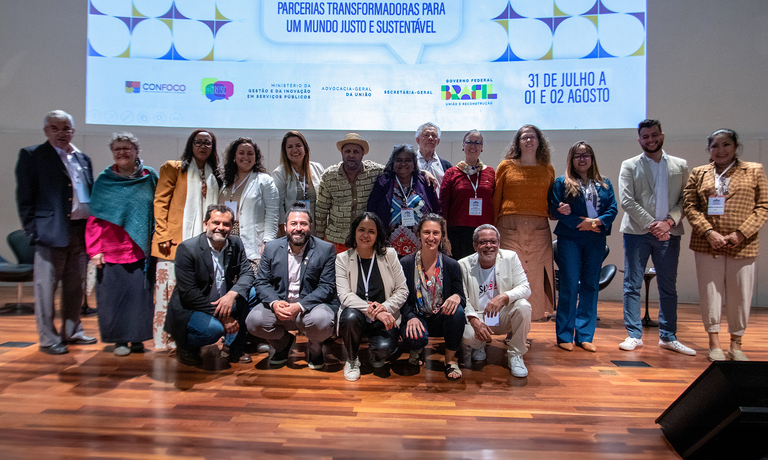Health education actions empower children and caregivers to self-care
Chronic patients are especially benefited by the actions, which seek to adapt the guidelines to an easy-to-understand language
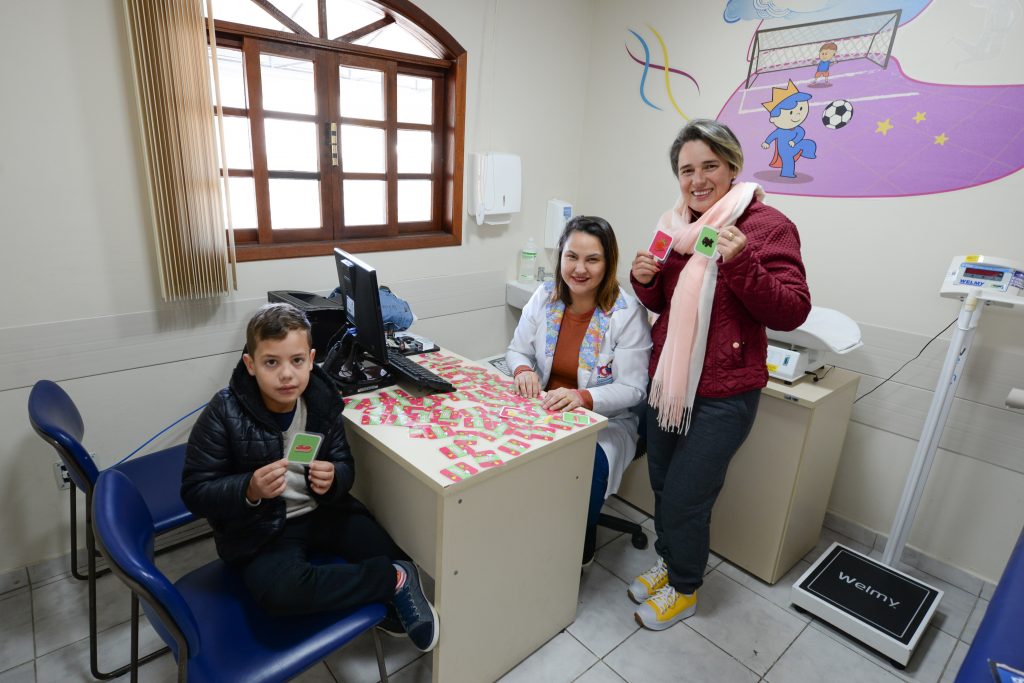
Anthony was 8 months old when he became extremely ill for the first time, after eating yogurt and some milk biscuits. Frightened, the family sought immediate assistance in the interior of Paraná state. Without a diagnosis and with the boy’s health worsening, his mother, Ana Célia Costa do Santos, sought help at Pequeno Príncipe Hospital. New tests were requested over the following months until the diagnosis came. Anthony has a rare metabolic disease: Fructose-1,6-bisphosphatase deficiency.
“It is a disease for which there is no drug treatment. The treatment is the correct diet, as these patients’ bodies cannot metabolize fructose,” explains nutritionist Ana Claudia Cruz dos Santos, who monitors patients at the Outpatient Clinic for Rare Diseases. In these children, ingestion of tiny amounts of fructose or sucrose causes low blood sugar levels (hypoglycemia), causing sweating, mental confusion, and sometimes convulsions and coma. If consumption continues, kidney and liver damage, vomiting, mental deterioration, and convulsions develop, which can lead to death.
The nutritionist advises that, currently, it is common for diagnoses of rare diseases to be elucidated when the child is still noticeably young, increasing the chances of a normal life. Caregivers are instructed on what is necessary to maintain the child’s health. With the evolution of care, these babies are growing, becoming autonomous children and adolescents.
Anthony is one of those patients. While spending a weekend at a relatives’ house, without his mother, he ate foods that are not included in his diet and was admitted to the Pequeno Príncipe ICU again. “This situation warned us that it is not enough to instruct parents and other caregivers. We need to enlighten the children, speaking in a language they understand,” highlights the nutritionist. This is how the memory game that Ana uses in consultations came about. Foods are drawn on green, yellow or red cards, indicating to the child which ones are permitted, moderate or prohibited for consumption.
“The memory game was especially useful to reinforce Anthony what he can and cannot eat. He is already fairly acquainted, but he is still a child, he wants to eat and sometimes he eats thinking it won’t cause him harm,” says his mother, Ana Célia. “The game is a way of teaching and continually reinforcing the guidelines,” states nutritionist Ana Claudia.
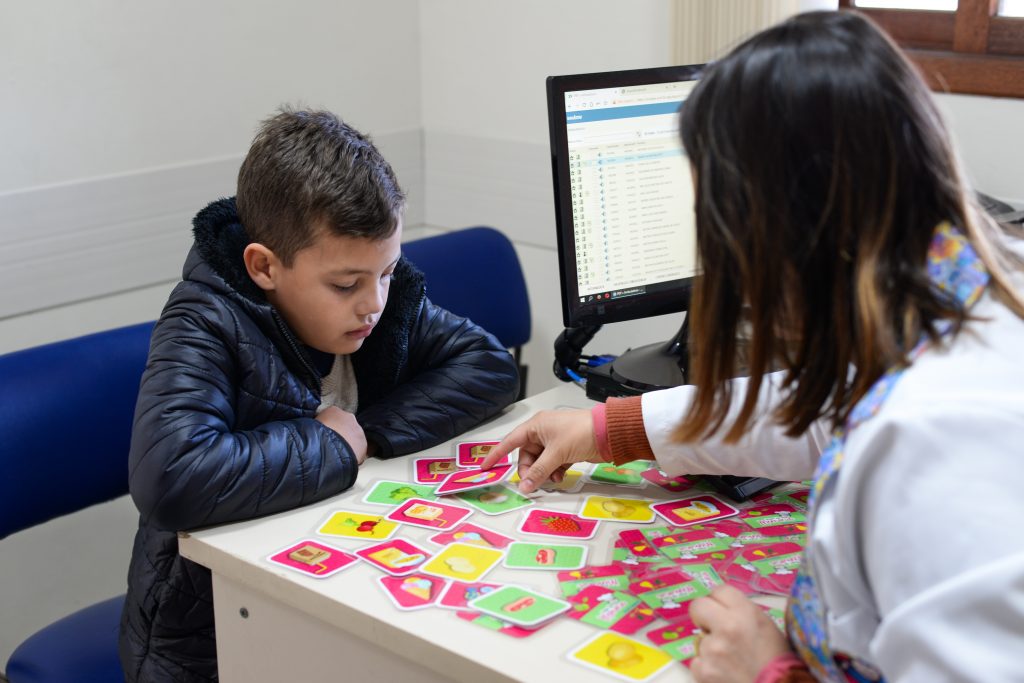
Chronic illnesses
Health education actions are also present in other sectors of the Hospital through the Humanization Sector, which has been implementing initiatives that aim to develop capabilities related to self-care, improving the relationship between caregivers and care teams and increasing the possibility of adherence to treatment. The work is based on the Brazilian National Humanization Policy, which has among its principles the autonomy and protagonism of individuals.
The first initiative is being developed at the Renal Replacement Therapy Service (hemodialysis), under the command of educator Jandicleide Evangelista Lopes. “Our goal is to give new meaning to the experience in this environment. Chronic patients experience a lot of suffering, and suffering cannot permeate their lives on a daily basis. We seek to create new existential territories, new ways of seeing life,” she points out.
When starting work in the service, Jandicleide began to raise the demands of families and multidisciplinary teams, creating a map with the convergence of needs. This map is feeding an agenda of meetings in which everyone’s knowledge is aligned and joint solutions are sought, strengthening communication.
One of the main situations that compromised treatment was families forgetting to take the medicines that children need to receive after hemodialysis to the Hospital. After some talk with the families, the team understood that the family needed a suitable bag to carry these medications, as well as a booklet with a complete description of the therapeutic plan, which could help if the child needed medical care in other services.
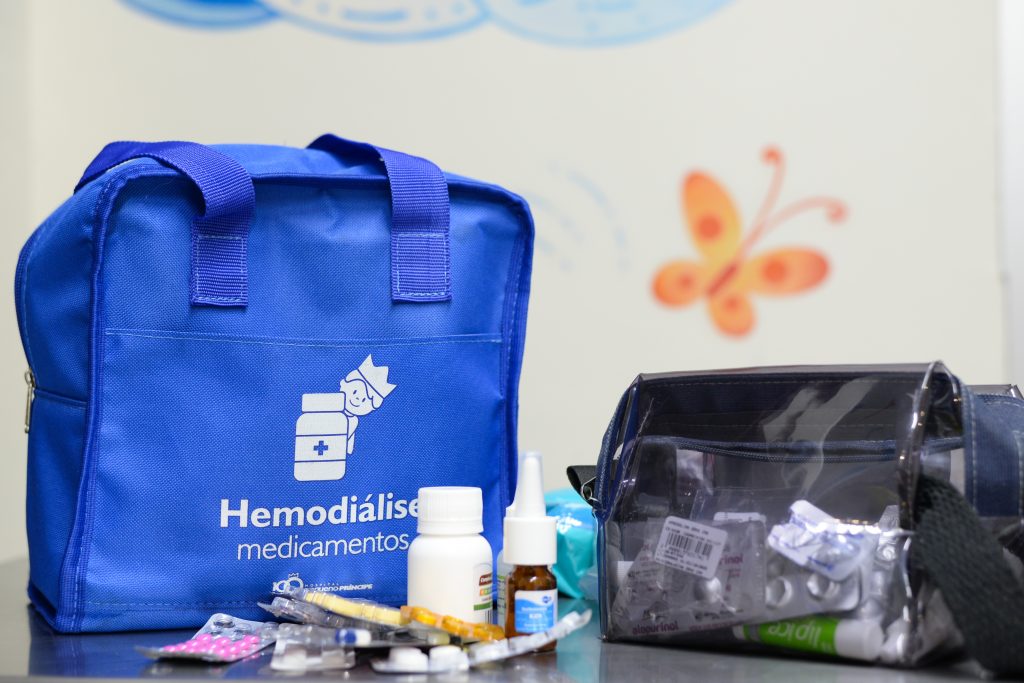
Health education actions are also present in some hospitalization areas of the Pequeno Príncipe, in which the nursing team detected the need for greater understanding, on the part of patients’ companions, about the best conduct during their stay in the Hospital. These behaviors are included in the manual “Admission: Everything you need to know” and aim to guarantee everyone’s health, as well as establish a harmonious coexistence, favoring the recovery of children.
For nephrologist Denise Siqueira Lemos, strengthening ties with family members through health education actions is key to the success of treatment, especially in the case of chronic patients. “Within hemodialysis, the interaction between family, patient and technical team is intense due to the frequency of the sessions. Reinforcing this relationship in a positive way becomes fundamental. Routine exams, water restriction, low sodium diet, antihypertensives are expressions that have become commonplace and need not only to be understood in their scientific meaning, but also understood and applied on a daily basis,” she emphasizes. For her, the “dialogue between the technical team and the family must be valued and constantly constructed, as a two-way street, with a common objective: The quality of life of the chronic patient.”
More
Pequeno Príncipe reaches the milestone of 500 bone marrow transplants
The Hospital is a national reference in the procedure, and around 30% of transplants performed at the institution are for rare diseases
Research seeks to develop new treatment for Alzheimer’s
Ranked in fifth place among the 204 registered, the project was approved by the Brazilian governmental agency Finep and will receive financing of US$ 2.06 million
Pequeno Príncipe discusses culture of donation at the MROSC seminar
The event was part of the G20’s agenda of activities to strengthen discussions on partnerships between public administration and civil society organizations


